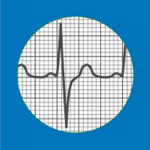|
|
||||||||||||||||||||||||||||||||
|
PATIENT RIGHTS AND RESPONSIBILITIES In accordance with the mission, vision and values of Western Anesthesiology Associates, Inc. and, its medical staff and employees, we are committed to providing you with quality care and treatment. In addition to receiving quality, compassionate care, as a patient you are entitled to certain benefits and protections under law. We believe that these rights provide a fundamental foundation for the rendering of health care services and link us to the common goal of quality health care. While not intended to be an exhaustive, comprehensive analysis of every benefit under federal or state law, we affirm and support the following patient rights. ACCESSING CARE AND SERVICESAs a patient, you have a right: To receive notification of your patient rights in writing and information concerning important hospital policies and a list of available supportive resources, such as an ethics committee, patient advocate and pastoral and spiritual services, in advance of furnishing or discontinuing patient care whenever possible. To request treatment and receive considerate and respectful care from Western Anesthesiology personnel. To expect medically appropriate health services from Western Anesthesiology within its capabilities. Although treatment referral or transfer may be medically appropriate, you will be informed of the risks, benefits and alternatives prior to the transfer of your care to other health care providers. You will not be transferred from the hospital until another institution accepts to receive you for care. To voice any concerns that you may have concerning the care you receive and to have those concerns reviewed and resolved. Voicing a concern whether by you or another individual on your behalf will not compromise your care or access to healthcare at the hospital.
To access an internal or external grievance process for the timely review of concerns or more serious issues that may affect your care, and to receive a written notice of any decision made regarding your concern. The telephone number and address of the available state agency that you may contact is listed in the hospital information packet provided to you. To expect that your physician and family members or representatives will be notified promptly of your admission to the hospital, unless you request that this not be done. To access available communications, including mail and telephones, and permitted visitors unless either are clinically contraindicated. Any restrictions, however, will be explained by you. To examine and receive an explanation of your anesthesiology bill. IN RECEIVING TREATMENT As a patient, you have a right: To be involved in the development and implementation of your plan of care and to receive information from your physician to enable your informed decision and consent prior to the start of any procedure and/or treatment. Except in emergencies, such information for informed consent should include, at a minimum, the specific procedures and/or treatment proposed, the medically significant risks involved, the benefits of the procedure and the medical alternatives, if any, available. To receive medically necessary and appropriate care. To obtain understandable information concerning your diagnosis and health status, proposed treatment and prognosis and the financial implications associated with the available treatment choices. To know the name of the physician responsible for coordinating your care, as well as the identities of other healthcare members involved in your care. To refuse treatment, to the extent permitted by law, including being informed of the medical consequences of the refusal of treatment. To the appropriate assessment and management of your pain. To be free from restraints or seclusion that are not medically necessary or are imposed as a means or coercion, discipline, convenience or retaliation by staff, or used in a manner that is not consistent with federal or state regulations. To consent or decline to take part in research and/or experimental procedures affecting your care. To have your rights protected during research, investigation, and clinical trials involving human subjects. To be informed by the practitioner responsible for your care, of any continuing health care needs following the discharge from the hospital. To know if Western Anesthesiology has relationships with outside individuals that may influence your treatment and care. These relationships may be with educational institutions, other healthcare providers, or insurers. PERSONAL PRIVACY AND CONFIDENTIALITY As a patient, you have a right: To confidentiality and personal privacy concerning your medical care program. Case discussion, consultation, examination and treatment are confidential. Those not directly involved in your care must have your permission to be present during any medical or nursing treatments or discussion of your care. To receive care in a safe setting, free from abuse or harassment. To expect that all communications and records pertaining to your care be treated as confidential. Permission in writing is necessary before Western Anesthesiology will release any health care information*, except as may otherwise be required by law. To reasonable access and review of your medical records. How Western Anesthesiology may use or disclose your health information: For Treatment. Health care providers will record information in your record related to your treatment, actions taken by them and your response to these actions. For Payment. Western Anesthesiology may use and disclose your health information to others for purposes of receiving payment for treatment and services that you receive, i.e., insurance company or health plan. For Health Care Operations. Western Anesthesiology may use and disclose health information about you for operational purposes, i.e., evaluate the performance of staff; assess the quality of care and outcomes in your cases; learn how to improve our facilities and services; and determine how to continually improve the quality and effectiveness of the health care we provide. Appointments. Western Anesthesiology may use your information to provide appointment reminders or information treatment alternatives or other health-related benefits and services that may be of interest to the individual. Required by Law. Western Anesthesiology may use and disclose information about you for the following purposes: For judicial and administrative proceedings pursuant to legal authority; To report information related to victims of abuse, neglect or domestic violence; and To assist law enforcement officials in their law enforcement duties; Public Health. Your health information may be used or disclosed for public health or other legal authorities to prevent or control disease, injury or disability. Decedents. Health information may be disclosed to funeral directors or coroners. Organ/Tissue Donation. Your health information may be used for cadaveric organ, eye or tissue donation purposes. Health and Safety. Your health information may be disclosed to avert a serious threat to health or safety of your or any other person. Government Functions. Government functions, such as the protection of the public officials or reporting to various branches of the armed services that may require use or disclosure of your health information. Workers Compensation. Your health information may be disclosed in order to comply with laws and regulations related to Workers Compensation. PATIENT RESPONSIBILITIESBecause your participation in your care is important, you, as the patient, have the following responsibilities: To provide, to the best of your knowledge, accurate and complete information about present complaints, past illnesses, hospitalizations, medications, description of pain and pain relief, and other matters relating to your health and to report unexpected changes in your condition to your provider and hospital staff caring for you. To ask questions or request additional information if you do not understand what you have been told about your care or treatment plan. Once an agreed upon plan of care is determined, to follow the established treatment plan as the coordinated plan of care and the interventions for pain relief. You are responsible for keeping appointments, and when unable to do so for any reason, to notify your practitioner or the hospital. To be responsible for your own decisions if you refuse treatment or do not follow the practitioner’s instructions concerning the treatment plan. To follow the hospital policies and rules affecting your care and conduct while in the hospital. To be considerate of other patients and hospital staff. The hospital works to provide care efficiently and fairly to all patients. To facilitate the arrangements for the appropriate payment to Western Anesthesiology for the care and treatment provided to you, including providing accurate information of insurance or other payment information. Your health depends not just on your hospital care, but, in the long term, on the decisions you make in your daily life and the effect of those lifestyle decisions on your personal health.
|
About your anesthesiologist:
Prior to surgery, the anesthesiologist will evaluate the patient's medical condition and formulate an anesthetic plan which takes that patient's physical condition into account. It is vital that the anesthesiologist knows as much about your medical history, lifestyle, and medications as possible. Some particularly important information he/she needs to know includes the following:
Undergoing surgery can be a good motivator to quitting smoking. Most hospitals are smoke-free and physicians, nurses, and other health professionals will be there to give you support. In addition, you will heal and recover faster, especially in the incision area, or if your operation involves any bones. Quitting smoking also reduces your risk of heart disease and cancer.
Meeting the anesthesiologist before the surgery:
If you have not personally met during the preoperative interview, the anesthesiologist will meet with you immediately before your surgery to review your entire medical history as well as results of any medical tests previously conducted. By this time, he/she will have a clear understanding of your anesthetic needs. How are other existing pre-existing medical conditions handled during surgery? If you have a pre-existing medical condition such as diabetes, asthma, heart problems, arthritis, etc., your anesthesiologist will have been alerted to this and will be well prepared to treat these conditions during your surgery, as well as immediately afterward. Anesthesiologists are trained to handle sudden medical problems related to the surgery, as well as any chronic conditions that may need attention during the procedure. How is the patient's condition monitored during surgery? Monitoring is one of the most important roles the anesthesiologist handles during surgery. Second-by-second observation of even the slightest changes in a wide range of body functions gives the anesthesiologist a tremendous amount of information about the patient's well-being. In addition to directing your anesthesia, the anesthesiologist will manage vital functions such as heart rate, blood pressure, heart rhythm, body temperature, and breathing. He/she will also be responsible for fluid and blood replacement, when necessary. Sophisticated technology is used to monitor every organ system and its functioning during surgery.
Types of anesthesia: During surgery, you will be given some form of anesthesia - medicine administered for the relief of pain and sensation during surgery. The type and dosage of anesthesia is administered by the anesthesiologist. When a patient faces surgery, he/she will meet with the anesthesiologist before the procedure. The anesthesiologist will review the patient's medical condition and history to plan the appropriate anesthetic for surgery. There are various forms of anesthesia. The type of anesthesia you will receive will depend on the type of surgery and your medical condition. Usually, an anesthesiologist will administer a sedative in addition to the anesthetic. The different types of anesthesia are as follows:
Information from Mercy Hospitals website. Click to view their Online Resources page
|
|||||||||||||||||||||||||||||||
|
|
|
|||||||||||||||||||||||||||||||

 Anesthesiologists are the physicians trained to administer and
manage anesthesia given during a surgical procedure. They are also
responsible for managing and treating changes in your critical
life functions - breathing, heart rate, and blood pressure -
Anesthesiologists are the physicians trained to administer and
manage anesthesia given during a surgical procedure. They are also
responsible for managing and treating changes in your critical
life functions - breathing, heart rate, and blood pressure -  Because anesthesia and surgery affect every system in the body,
the anesthesiologist will conduct a preoperative interview.
Sometimes this is done in person; in other cases, the
anesthesiologist will interview you over the telephone. During
this interview, the anesthesiologist will review your medical
history, as well as discuss the information mentioned above.
He/she will also inform you about what to expect during your
surgery and discuss anesthetic choices with you.
Because anesthesia and surgery affect every system in the body,
the anesthesiologist will conduct a preoperative interview.
Sometimes this is done in person; in other cases, the
anesthesiologist will interview you over the telephone. During
this interview, the anesthesiologist will review your medical
history, as well as discuss the information mentioned above.
He/she will also inform you about what to expect during your
surgery and discuss anesthetic choices with you.